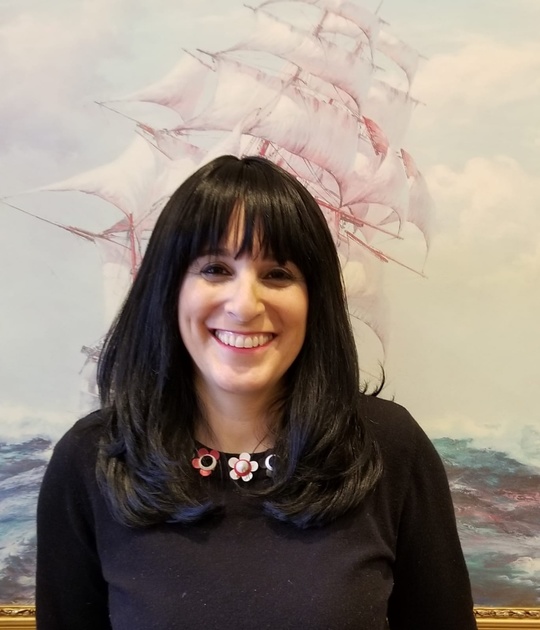
It's horrible. It's frustrating, crippling, disabling, devastating, incapacitating, life-impairing.
Should I go to the thesaurus to find more adjectives, or have I gotten my message across adequately?
I am talking about OCD. Obsessive-compulsive disorder.
We joke about it cavalierly. As if we mean it, but we really don't.
“I am OCD about making supper every night for my kids.”
“Her house is OCD clean.”
“I am OCD'ing about my new job tomorrow.”
Because if we would truly understand it, we would know it is no joke.
This is a topic I should have written about the minute I began practicing therapy. But I didn't understand what I was seeing. And when I finally did understand, I thought that I was imagining things. That there was something wrong with me as a therapist that so many of my clients I was diagnosing with either OCD, or OCD-tendencies (not that tendencies is a diagnosis, but still—). Or maybe, I thought hopefully, because of my success helping people with their symptoms of anxiety, they were referring their friends; which would account for the lopsideness of my practice in which so many of clients were exhibiting the same symptoms. But neither of these explanations made sense when so many of my clients were totally unrelated in any way to the other. And I was seeing OCD in older children, teens, young adults, and even senior adults.
I must confess that as I write this, I am thinking about all those I initially treated whose symptoms I conceptualized as anxiety. And my work was successful, fortunately; but as I think back, there was a strong OCD component that had not been addressed. Even more disturbing, is that those stubborn ones (symptoms, not clients!) were being treated also with medication; and despite communication with their psychiatrist, no mention was ever made of a possible OCD diagnosis. So who was I to tell the psychiatrist something that seems so obvious to me now?
What is truly propelling me to write this column now is not so much for the adults who are coming into my practice with these symptoms, but for the parents of children and teens, who are oblivious to the gehinom in which their children, suffering from OCD, are living every day of their lives.
The adults know something is wrong and often seek relief pretty quickly into their symptoms. They absolutely cannot function as mothers or wives. Or, the spectre of shidduchim looms ahead and they know that marriage is not an option as long as they are consumed by their obsessions and compulsions. But the children only have recourse to telling their parents. And as children, or even teens, they often cannot express their distress. They say, “I don't feel good.” They say, “I am not feeling okay.” “I can't breathe sometimes.” “I don't like walking outside after dark.”
Their parents, good people, reassure them. “Tomorrow you will feel better.” Or, “So your older sister will walk with you/instead of you to the friend/grocery/school.” Or, “Take an Advil and you will feel better.”
Even worse, when these teenagers finally find their way to a therapist (like me), often only the anxiety is addressed without attention to possible OCD that is underlying the anxiety, or perhaps exists simultaneously alongside the anxiety.
Today, as silly as I feel assessing immediately for OCD with any client that presents with anxiety—and even the ones that don't, I make sure to do it anyway.
A caveat before I actually address the symptoms and treatment: Remember that this is only a thumbnail sketch of OCD. If you suspect that you or someone you know has OCD, or even OCD tendencies, check it out by a competent therapist. Or read the book, Stop Obsessing by Edna B. Foa, any edition.
So what is OCD? How is it different than having anxiety or phobias?
OCD is considered an anxiety disorder (although there are those who say it is not; it is a whole other animal). Generalized Anxiety Disorder, for example, is different than OCD in that a person with GAD worries, but the content of the worries are rational. What makes it GAD is the excessive worrying. Someone with OCD believes that a set of rituals will alleviate his distress. “If I check the fires one more time,” thinks someone with OCD, “then I will stop worrying that I left them on during the 3 hour drive to the Catskills for Shabbos Chanukah.” And so they check. Once. Twice. And then twenty times. In contrast the GAD which says, “I am never going to find a job.” And is simply worried about it.
OCD consists of obsessions—anxious thoughts, and compulsions—repetitive behavior aimed at reducing these anxious thoughts. These behaviors are not only overt behaviors like checking, but also covert ones that are unseen by other people as they manifest in thoughts like counting or saying Tehillim. The behaviors provide only temporary relief of symptoms and then usually become more intense, more ritualized, more compulsive.
Here are some typical OCD stuff that come up. Taking upon oneself kabbalos. Checking if the fire is closed, repetitive thoughts of “I am nobody,”; the urge to daven or something terrible will happen, need to have the dishes, outfits, or shoes lined up just right, rituals around walking home after dark, compulsions to do things like kiss the mezuzah a specific amount of times. There are many more, and what differentiates these actions from regular ones are the urges and horrible feelings that accompany them.
One of the scariest parts of OCD is the obsessive worry that they will hurt someone. When someone comes in with anxiety and I suspect OCD, I ask, “Do you have the knife thought?” And there is an incredible relief to hear that they are not crazy, that this thought is typical of OCD and that they will not be hurting anyone in their life.
People with OCD often have anxiety, worrying about their OCD.
People with OCD often have co-morbid diagnosis as well. Depression. Who wouldn't be depressed dealing with a brain that seems totally out of whack but is often evident to only them; while they outwardly function quite successfully?
People with OCD may have phobias, irrational fears. The OCD may develop out of these fears, to keep them safe. Usually phobias, if contained, don't need to overwhelm a person. For example, if I am phobic of snow but live in California, as long as I don't particularly need to fly to New York in the dead of winter, I am generally doing okay. But if I live in New York, my fear of snow may severely debilitate my functioning.
So what's the treatment for OCD?
Therapy.
As I am not a psychiatrist, I do not diagnose my clients. I will describe their symptoms as OCD-like tendencies. Or features of OCD. And then use cognitive behavioral methods to address the symptoms. But medication with therapy is often mandated for OCD. I have heard of the term “sticky brain” applied to OCD and it is an apt description. The medication reduces the stickiness so that therapy can work. Sometimes medication is short term; sometimes long term.
I know, I know. What happens to people with OCD around shidduchim time?
Usually they get married. Like the rest of the world. Because they are wonderful people (or not) like the rest of the world. But if someone with OCD does not get help, does not take medication when it is mandated, their lives, and the lives of their spouses and children become gehenimon on Earth. And I do not say this lightly.
Parents do not cause OCD. It's an inborn, genetic trait that can be triggered by stress or an illness. But parents and family members can definitely maintain a person's symptoms by accommodating rituals instead of getting a person the help she needs. Too often I have seen parents ignore the distress of their child, thinking “She's going to grow out of it,” or, “After he gets married we will take of it.”
So stop obsessing about shidduchim and take care of it.
Originally published in Binah Magazine
Look me up on LINKEDIN https://www.linkedin.com/in/mindy-blumenfeld-a8067583
Check out my book THERAPY SHMERAPY, available in bookstores and through Amazon
Browse through my previously published articles on my former blog Therapy Thinks and Thoughts at frumtherapist.com/profile/MindyBlumenfeldLCSW
Read current articles in my bi-weekly column THERAPY: A SNEAK PEEK INSIDE in Binah Magazine, available on newsstands every Monday.
 Previous
Previous

